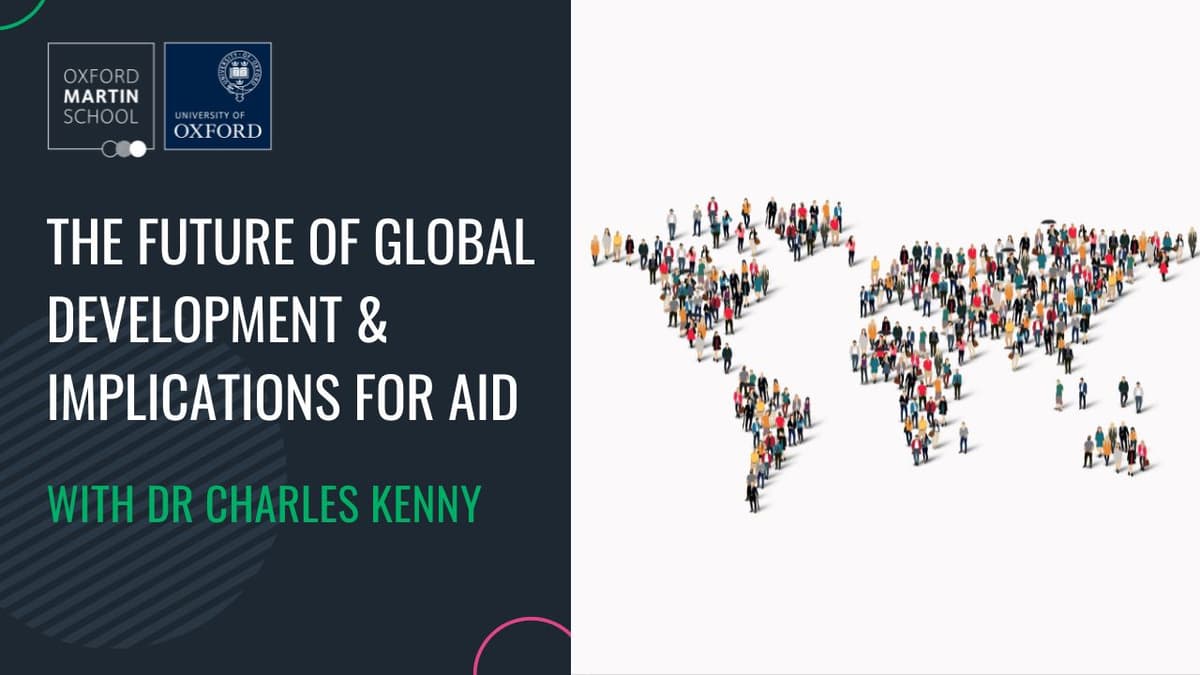
The future of global development and implications for Aid with Dr Charles Kenny
By Oxford Martin School
hosted by
Oxford Martin School
share
The future of global development and implications for Aid with Dr Charles Kenny

By Oxford Martin School
hosted by
Oxford Martin School
share